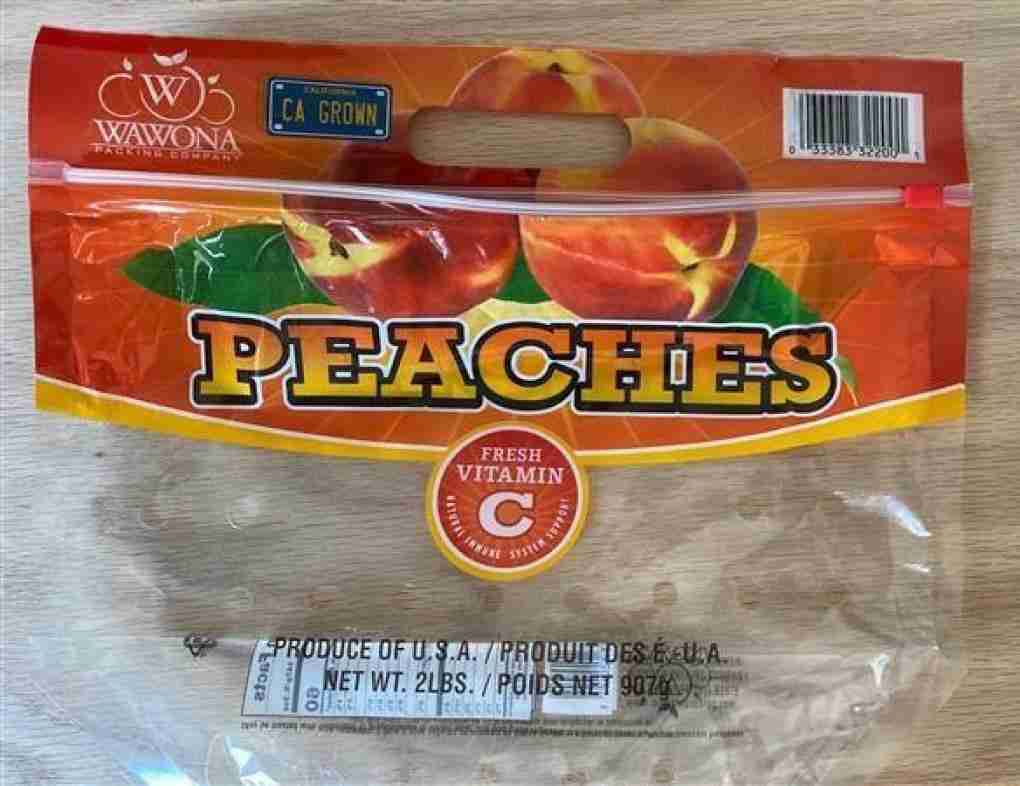Thirty-three Canadians in Ontario (22 cases) and Quebec (11 cases) have become infected with Salmonella Enteritidis after consuming peaches imported from the USA, according to a report released this morning by the Public Health Agency of Canada (PHAC).
Three of the outbreak victims have been hospitalized.
Those infected with the outbreak strain of Salmonella Enteritidis range in age between 0 and 91 years, and 55% of the victims are female.
The outbreak is linked to peaches supplied by Prima Wawona, a California-based company, which has recalled a series of products from the marketplace.
Prima Wawona peaches have also been blamed for an outbreak of Salmonella Enteritidis in the USA, which had sickened 68 individuals in 9 US states as of August 21st, according to the US Centers for Disease Control and Prevention.
On August 22nd, the Canadian Food Inspection Agency (CFIA) issued a Consumer Advisory alerting Canadians to the presence of the recalled peaches in the country and warning that PHAC had identified some illnesses linked to their consumption.
Canadian consumers should avoid purchasing, serving or eating any of the following peaches, or any other food products containing these peaches.
- Harvest Sweet Sweet 2 Eat Prima Sweet Value Wawona Yellow Peaches; PLU 4037, PLU 4038 PLU 4044,
- Harvest Sweet Sweet 2 Eat Prima Sweet Value Wawona White Peaches; PLU 4401
- Sweet 2 Eat Sweet O Organic Yellow Peaches; PLU 94037, PLU 94038, PLU 94044
- Sweet 2 Eat Organic White Peaches; PLU 94401
- Wawona Peaches; 907g / 2 lb; UPC 0 33383 32200 1
- Wegmans Peaches; 907g / 2 lb; UPC 0 77890 49048 8
- Extrafresh Peaches; 907g / 2 lb; 0 33383 02071 6; Codes CPO3148, CPO3164, CPO3163, CPO3186, CPO3207, CPO3213, CPO3228, CPO3265, CPO3281, CPO3302, CPO3328, CPO3354, MPO0500, MPO0503, MPO0524, MPO0671, MPO0678, MPO0689, MPO0693, MPO0703, MPO0716, MPO0725, MPO0730, MPO0767, MPO0795
Peaches imported in bulk may have been sold loose or in bulk, with or without a brand name. These peaches may have been repackaged into a variety of formats.
Except for the Extrafresh Peaches, the recall encompasses all products sold from June 1, 2020 forward.
What Consumers Need to Know
- Do not purchase or consume any peaches listed above. If you are in doubt as to the origin of peaches which you have already purchased, throw them away and disinfect the bin in which they were stored.
- Some of the peaches may have been supplied to restaurants, hotels, bakeries or various food service establishments, including hospitals and nursing homes and may have been used in salads, desserts or baked goods. It would be prudent to avoid all of these items, unless you can be certain they were produced using peaches not included in this Advisory.
- If you are suffering from symptoms of salmonellosis, including low-grade fever, stomach cramps, diarrhea, and/or vomiting, consult your healthcare professional. Be prepared to provide information on the food items you consumed during the week before beginning to experience your symptoms
This is the third Canadian foodborne disease outbreak since the beginning of July, all of them linked to consumption of produce imported from the USA. Local produce is readily available during the summer months. Consider supporting your local producers instead of buying imported produce.


